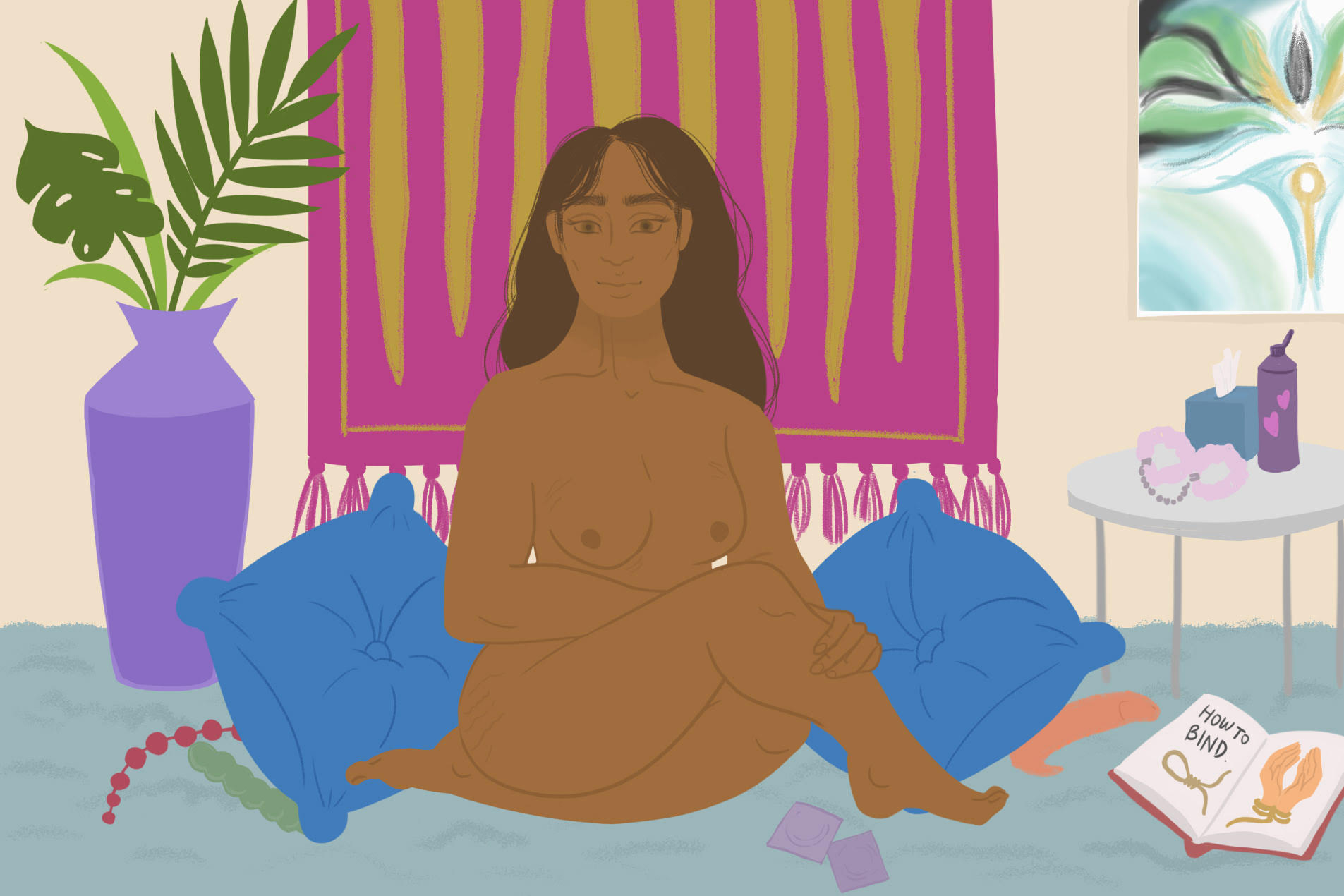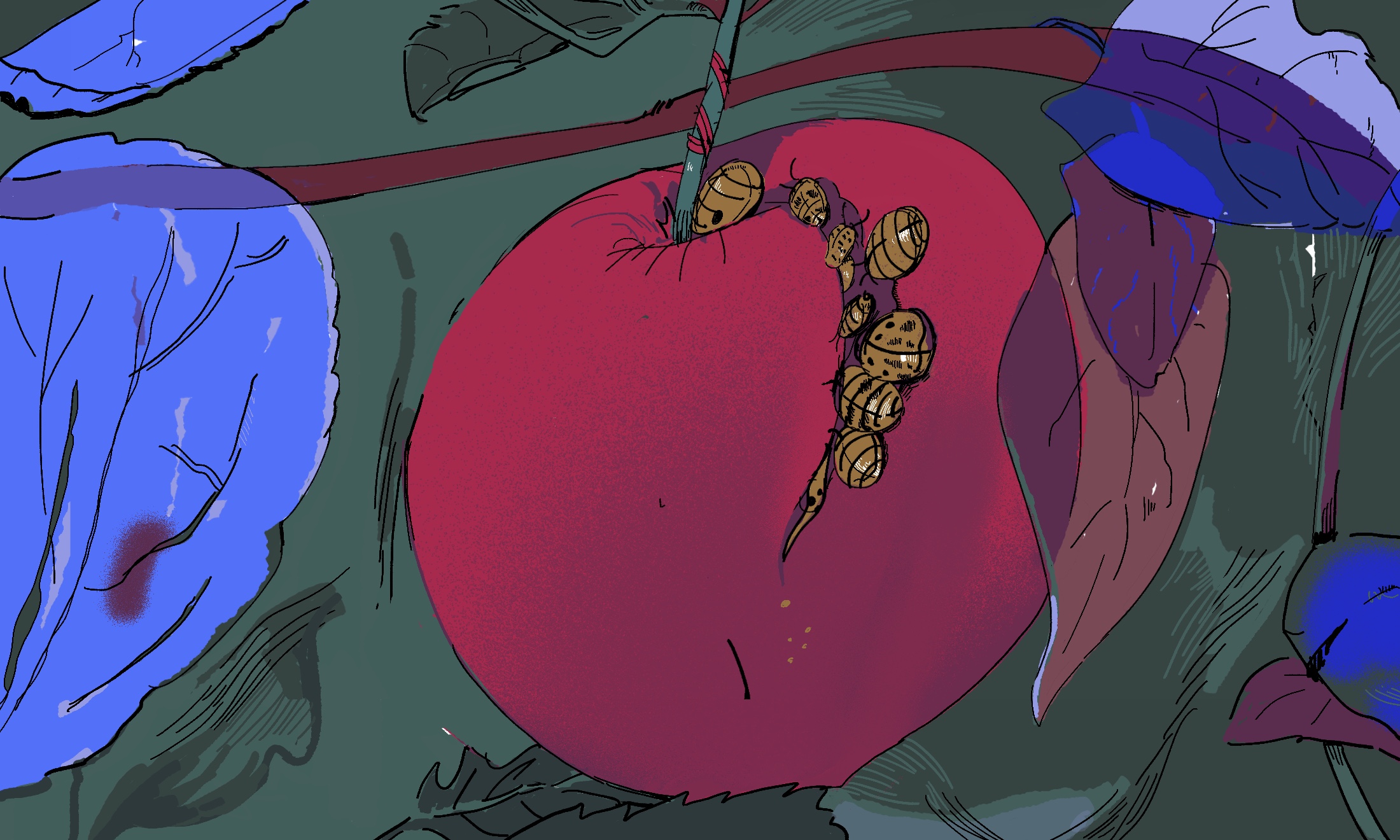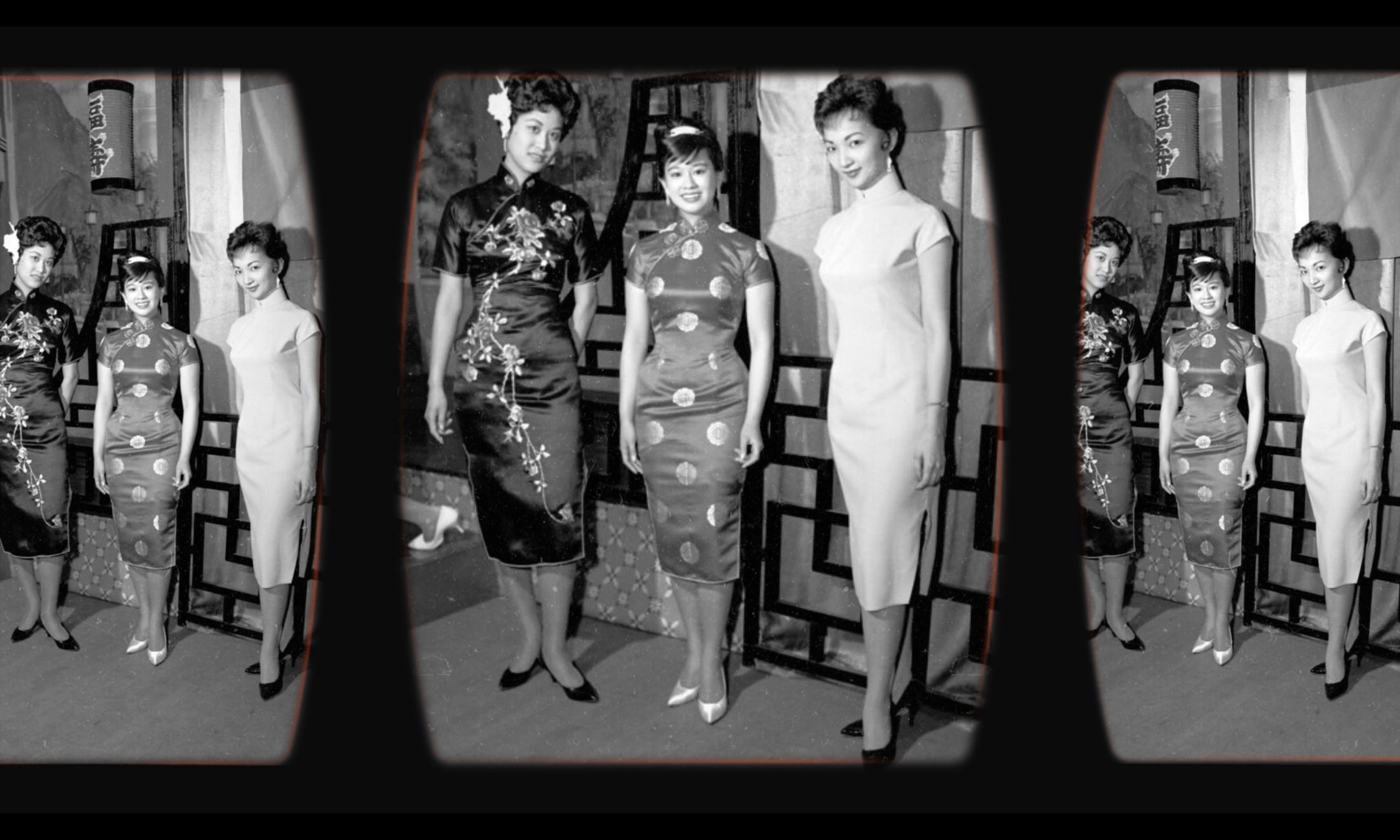
Illustration: Ragavee Balendran
The most well-kept secret (from our parents) amongst second and third generation British South Asians is that we’re all having sex. In 2018, as part of the BBC’s Big British Asian Summer Season, a survey for BBC Asian Network found that 34% of British Asians would be offended if a relative had sex outside of marriage vs. only 5% of UK-wide respondents.
This segment of the report which overall discovered that British Asians to be more socially conservative vs. the rest of the UK may be a surprise to some, but for myself and many other South Asian women this isn’t exactly news. Instead, it just reinforces the modern day challenge I, along with many others, have experienced in trying to balance a world full of swiping, super likes, casual sex and community expectations.
In fact, we’re all having plenty of sex outside of marriage. We’re having casual sex, we’re having one-night stands, some of us are even having the really good type of sex that momentarily makes you think you have exploded into flames. Even the really polite sweet girl that your mum wishes you were more like, who shows up to every single family function nodding politely at all the aunties and uncles, is secretly having wild kinky sex. Yep. Even her.
Whilst second and third-generation immigrant women are adept at balancing their traditional values with their own identities, things become more complicated when it comes to sex. We have been raised with the strict idea that sex is only something that married people engage in. Sex is only there for procreating. Sex is only between a man and woman. These damaging and restrictive views have too long been protected by the cloak of traditionalism, and have prevented many South Asian women (myself included) from embracing our sexual freedom.
“We’re having casual sex, we’re having one-night stands, some of us are even having the really good type of sex that momentarily makes you think you have exploded into flames”
Historically, such views have been influenced by empire, enforced by colonial values and entrenched by customs from traditional village life in rural areas of India and Pakistan. There, sexual education and dating are alien concepts. The first wave of South Asian immigrants into Britain during the 50s and 60s were still having arranged marriages, and therefore would have most likely have had zero experience of dating and the sexual adventures that accompany it. Many of these first arrivers would have then, in an effort to maintain their sense of self-identity, raised their children with the expectation of having an arranged marriage, and declared dating as a borderline illegal activity.
Although these views have changed, with many parents of second and third generation British Asians encouraging their children to select their own partners for marriage, view on sex outside of marriage has gone unchallenged. Women especially are held to a higher standard than their gender counterparts, and the focus increasingly is placed on us to be the keepers of an ancient notion of modesty and honour, commonly referred to as izzat. The very idea that British Asian women can enjoy sex outside of marriage is obscene, offensive and shameful to many in my community.
But why is this the case? Perhaps because it represents a direct challenge to a family structure and a way of life in which the dominance and control rest with men. Women are expected to be compliant, passive and modest. When a South Asian woman takes control of her own body, her own sexual activities, she is challenging her position and subverting cultural norms. She is baulking tradition in her community. But above all, she is directly challenging a patriarchal sub-society which has made her feel that sexual dominance and freedom is only acceptable for men.
Personally, I was only given two pieces of sexual education when growing up; one from my school on the basics of protection, and one from my mother who urged that under no circumstances should I have sex outside of marriage. Both pieces of advice were equally as rubbish – and were subsequently ignored. Instead I did what most people do; I experimented to discover my own preferences.
“When a South Asian woman takes control of her own body she is directly challenging a patriarchal sub-society which has made her feel that sexual dominance and freedom is only acceptable for men”
It is interesting the way in which these old-fashioned views translate into modern dating. Many of my friends from British Asian backgrounds are thinking about settling down and getting married, and are entering the dating world with all this explicitly in mind. Instead of feeling like they can be open and honest about their sexual history, they are finding themselves lying about it, with some even pretending to be virgins because they are afraid of being shunned by a potential partner. This places us in a harmful cycle of viewing sex as something that’s shameful and should be obscured by respectable women.
By hiding our sexual histories and our sexual preferences we are continuing to play into a system that places our needs and desires as secondary to those of men. By concealing what really turns us on, we are letting ourselves down sexually, because after all, if your partner doesn’t know what you enjoy, how can they please you? Whilst it is never the responsibility of a woman to fix a man, it is our own individual responsibility to demand respect from a partner and to do our part in breaking a cycle which has constrained us for far too long.
We should all take the steps to embrace our sexual choices, our sexual preferences, our sexual pasts and in exchange gain the sexual freedom which we should have always had.









